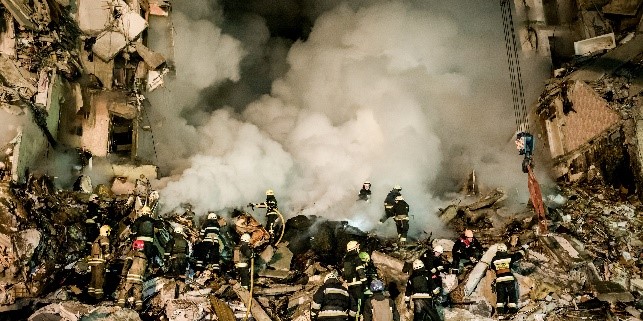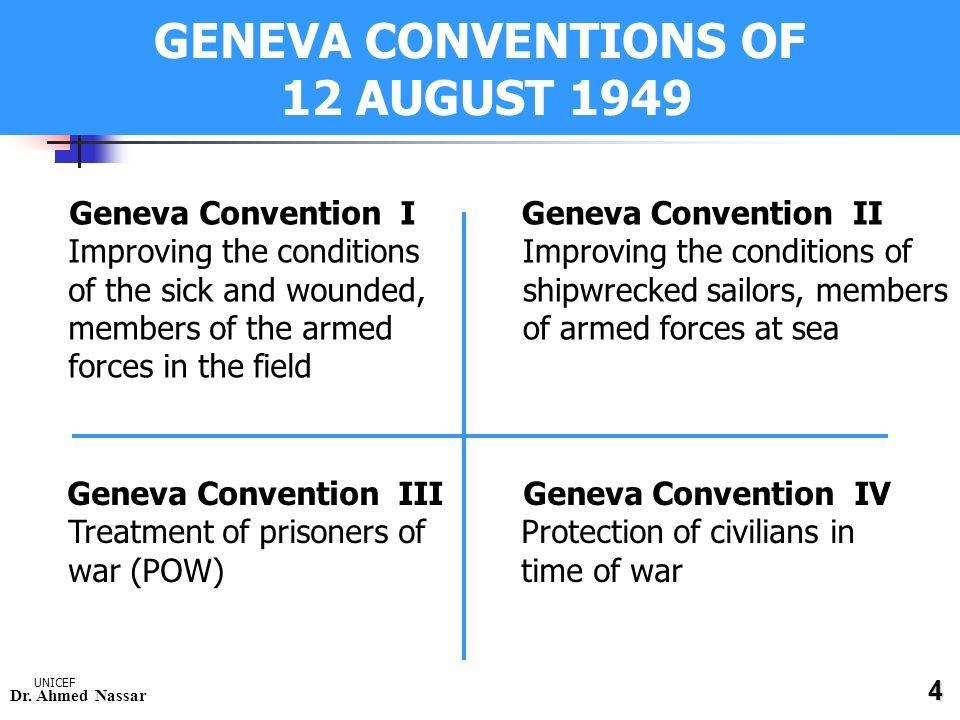Description

Disclaimer: Copyright infringement not intended.
Context
- Conflict between Israel and Palestinian forces since militant group Hamas’ assault has created a huge and rising death toll on both sides.
MUST READ ARTICLE ON ISRAEL HAMAS, ISRAEL PALESTINE CONFLICT: https://www.iasgyan.in/daily-current-affairs/israel-hamas-conflict
What laws govern the conflict?
- Internationally accepted rules of armed conflict emerged out of the 1949 Geneva Conventions.
- Geneva Conventions have been ratified by all UN member states and supplemented by rulings at international war crimes tribunals.
- A series of treaties govern the treatment of civilians, soldiers, and prisoners of war in a system collectively known as the “Law of Armed Conflict” or “International Humanitarian Law.
- It applies to government forces and organized armed groups, including Hamas militants.
Resolution in the case of the Israel-Palestine Conflict
- If alleged Palestinian perpetrators of atrocities in Israel and all alleged perpetrators of crimes on the occupied Palestinian territories are not brought to justice at home, the International Criminal Court (ICC) in The Hague is the only international legal organ able to bring charges.
- Domestic courts can apply so-called universal jurisdiction in war crimes cases, but that would be limited in scope.
- The ICC’s founding Rome Statute gives it legal authority to investigate alleged crimes on the territory of its members or by their nationals when domestic authorities are “unwilling or unable” to do so.

Role of the ICC
- The International Criminal Court (ICC), the world’s permanent war crimes tribunal, opened in The Hague in 2002.
- It has jurisdiction over war crimes, crimes against humanity, and genocide in its 123 member states or committed by its nationals.
- Many of the world’s major powers are not members, including China, the United States, Russia, India and Egypt.
- The ICC recognizes Palestine as a member state, while Israel rejects the court’s jurisdiction and does not formally engage with it.
Challenges
- With a limited budget and staff, ICC prosecutors are already investigating 17 cases ranging from Ukraine and Afghanistan to Sudan and Myanmar.
- The ICC budget has allocated just under a million euros ($1.06 million) for investigations in the Palestinian territories for 2023 and is seeking additional resources.
- The ICC has had an ongoing investigation into allegations of war crimes and crimes against humanity committed in the occupied Palestinian territories since 2021.
- It has not issued any arrest warrants.
- Prosecutors said in 2021 there was a reasonable basis to believe that violations had been committed on all sides, including by Israeli troops, Hamas militants, and other armed Palestinian groups.
What acts could violate war crimes law?
- The deliberate targeting of civilians, indiscriminate rocket attacks, and the taking of civilians as hostages by Palestinian armed groups, as well as the Israeli counter-strikes in Gaza that killed hundreds of Palestinians.
- The taking of hostages, murder, and torture are explicitly banned under the Geneva Conventions.
Defining War Crimes
A war crime is a violation of the laws of war that gives rise to individual criminal responsibility for actions by combatants in action, such as

Geneva Conventions
- In 1949, the Geneva Conventions legally defined new war crimes and established that states could exercise universal jurisdiction over war criminals.
- The Geneva Conventions are international humanitarian laws consisting of four treaties and three additional protocols that establish international legal standards for humanitarian treatment in war.
- The singular term Geneva Convention usually denotes the agreements of 1949, negotiated in the aftermath of the Second World War (1939–1945), which updated the terms of the two 1929 treaties and added two new conventions.
- The Geneva Conventions extensively define the basic rights of wartime prisoners, civilians and military personnel, established protections for the wounded and sick, and provided protections for the civilians in and around a war-zone.
- The Geneva Conventions concern only protected non-combatants in war. The use of wartime conventional weapons is addressed by the Hague Conventions of 1899 and 1907 and the 1980 Convention on Certain Conventional Weapons, while the biological and chemical warfare in international armed conflicts is addressed by the 1925 Geneva Protocol.

|
PRACTICE QUESTION
Q. Consider the following statements:
1.The Geneva Conventions concern only protected non-combatants in war.
2.Geneva Conventions have been ratified by all UN member states.
3.India, China, the United States, Russia, and Egypt are not members of the International Criminal Court (ICC).
How many of the above statements are correct?
A) Only 1
B) Only 2
C) All 3
D) None
Answer: C) All 3
|















